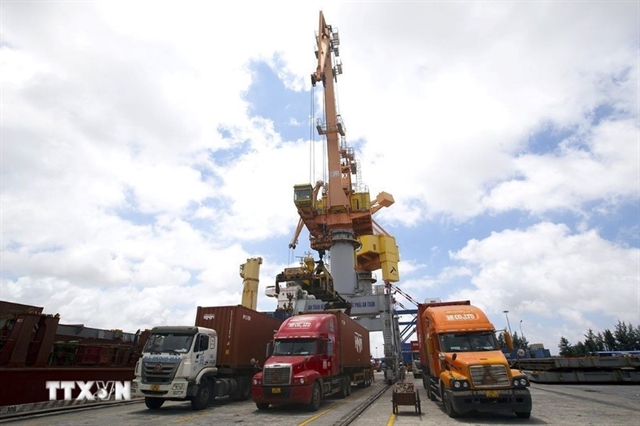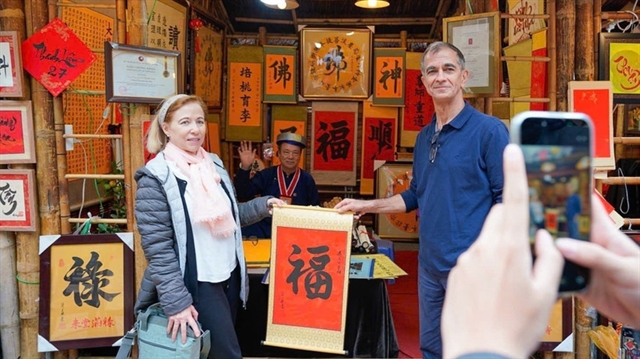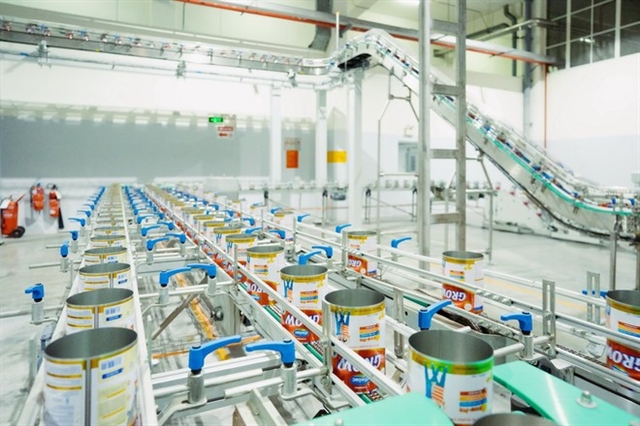 Life & Style
Life & Style

 |
| President of the Việt Nam Film Development Association Ngô Phương Lan. Photo courtesy of Ngô Phương Lan |
Ngô Phương Lan has been a success in the film industry over the past twenty years. She helped to establish the biennial Hà Nội International Film Festival in 2010, when she was the head of the Department of Cinema under the Ministry of Culture, Sports and Tourism.
After retirement, Lan became president of the Việt Nam Film Development Association (VFDA). The VFDA worked with Đà Nẵng in 2023 to organise the annual Đà Nẵng Asian Film Festival, which will take place from June 29 to July 5 this year.
Last month, she was a member of Việt Nam's delegation attending the 78th Cannes Film Festival to promote Vietnamese cinema to the world. Lan spoke about her work and the film industry.
Could you tell us about the delegation's activities promoting Vietnamese cinema at the Cannes Film Festival?
Cinema and tourism are closely linked. At the Cannes Film Festival, we had a series of activities promoting not only Vietnamese cinema, but also tourist destinations and Vietnamese culture as well.
One of the highlights was the seminar Việt Nam – A Dynamic Asian Market and Filming Destination for International Production.
The Vietnamese pavilion at Cannes this year was successful, with a large number of visitors. This is a testament to our achievement in connecting cinema and tourism.
After eight years, since a prominent pavilion at Cannes in 2017, the return of Việt Nam's delegation has created an opportunity for international filmmakers, artists and partners to learn about Vietnamese cinema.
Cinema and tourism not only help to promote the country's image, but also open up international cooperation opportunities for Vietnamese filmmakers. By participating in international events such as Cannes, we can build relationships with international producers, directors and film experts, thereby seeking opportunities for cooperation in joint film production, film distribution and introducing Việt Nam's tourist destinations.
This opportunity also helps Vietnamese filmmakers learn from major movie producers and apply new knowledge and skills to film production. At the same time, when Vietnamese films are introduced at international festivals, they gain the opportunity to be more widely known, expanding the market and attracting attention from international audiences.
However, the Vietnamese delegation mainly participated in sideline events at Cannes. International film festivals focus on official work and competitions. Cannes and the Berlinale also have markets for producers and filmmakers to meet and exchange ideas.
To cooperate in international filmmaking, Việt Nam needs to participate in the film markets, focusing on seeking cooperation opportunities.
Việt Nam has already received international attention, but to maintain its presence and truly join the world cinema circle, we need to heat up this interest by regularly participating in international film festivals.
To compare to major industries like those in Iran and South Korea, Việt Nam still needs to make more of an effort to build its status, and cannot simply wait to catch up with them.
What role has the VFDA played in connecting localities, filmmakers and international organisations at film festivals like Cannes or the Busan Film Festival?
Local connections are actually practical and useful to filmmakers. Around the world, many countries have preferential policies for film makers. In the US, states offer incentives for film makers, with an average support level of 25 per cent to 30 per cent and even up to 40 per cent.
This means that, if a film maker spends US$100, they will be reimbursed 25, 30 or even 40 dollars.
Similarly, Thailand, New Zealand and Australia also apply preferential policies for film makers.
However, in Việt Nam, we do not have similar incentives, although the Cinema Law has proposed to offer tax incentives for foreign film makers.
The VFDA has proposed an initiative to create the PAI index (Production Attraction Index), which offers incentives for both international and domestic film makers.
This index would help film makers, localities and agencies gain better understanding and coordination between them. For example, film makers are concerned about licensing procedures, but through the PAI Index, they will receive support in legal procedures, information and finance, such as hotel discounts, sightseeing tickets and local workforce support.
When localities support film makers, they will get great promotional value. If the film is successful, the tourism promotion effect will far exceed roadshow campaigns or tourism stimulus programmes.
We have therefore asked local authorities to join Vietnamese delegations at international events like Busan and Cannes.
What's the role of international film festivals held in Việt Nam in recent years in promoting Vietnamese cinema to the world?
The international film festivals held in Việt Nam are truly in line with the trend of proactively integrating into the international cinema industry.
They not only help Việt Nam introduce the films that we are proud of, but also create opportunities for Vietnamese filmmakers to approach and integrate into the international film environment.
Plus, it is a chance for domestic filmmakers to learn from one another and exchange ideas.
When participating in international film festivals abroad, Vietnamese delegations can only bring a few dozen people, or even just two or three people.
But when organising international film festivals here, we can attract hundreds of international filmmakers and experts to participate.
For example, the Đà Nẵng Asian Film Festival (DANAFF) slated for the end of this month is expected to receive 1,000 delegates and guests, including 100 international filmmakers and experts.
This creates an open environment, helping Việt Nam to be proactive in introducing its films.
What should Vietnamese filmmakers do to make the most of this opportunity?
It is important for us to choose films with both artistic and humanistic values, reflecting the spirit and cultural beauty of Asia and the world.
Participating films should not only have artistic value, but also need to express creativity, reflecting social and human values.
Choosing good films will help enhance the value of Vietnamese cinema and create opportunities for sustainable development of the national cinema industry.
International film festivals often attract arthouse movies. But this genre has not really developed in Việt Nam. What do you think?
Currently, selecting arthouse, auteur or independent films to participate in festivals in Việt Nam is quite rare. Each year, there are only one or two films that meet this criterion, or even none at all.
Award-winning movies are often arthouse films, which have a great influence on the community.
US Academy Award-winning movies are often both artistic and commercially successful. However, sometimes, the award is given to independent films that are not box office hits.
In the context of Vietnamese cinema, some filmmakers think that their arthouse films will not be well received, because they can be too difficult to understand.
However, arthouse movies don't necessarily alienate audiences. No one wants to watch a film without a unique idea and creative expression.
It is also important to note that blockbusters are sometimes overlooked. However, many of them are still highly valued at the festivals.
This needs to be accepted and understood: not all arthouse films are valuable, and blockbusters should not be underestimated.
Sometimes, hit movies have creativity that other films do not have. In a movie season, these films can be the best choices and deserve recognition because they have proven their ability to attract audiences and meet professional criteria. VNS




